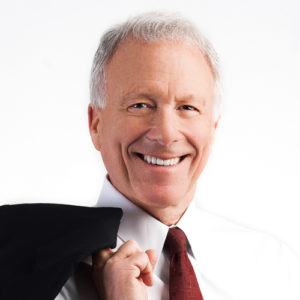The Yom Kippur War: A Case Study in Strategy, Power, & Character
Explore the Yom Kippur War, one of the great understudied hinge points of history.
Winter 2015
Washington, DC
The last years have strained the relationship between the United States and the State of Israel. The two nations have serious policy disagreements and the nation’s leaders deeply distrust one another. Is this a true crisis? Is the America-Israel relationship fundamentally changing? Is Israel alone in an increasingly dangerous Middle East?
Israelis and American friends of Israel hope that ties of popular affinity, military cooperation, intelligence sharing, and strategic alliance against radical Islamism and terror bind the two states together. For the moment, both of America’s major political parties pledge to stand behind Israel at the United Nations and on the battlefield. Practically all Israelis across the political spectrum believe that strong ties with the United States are important to the survival of the Jewish State. Judging by these lights, at least, one might think that we are going through a bad patch—as Israel has with previous American administrations of both political parties.
But are circumstances changing in more fundamental and lasting ways? In the Middle East, the democratic optimism surrounding the Arab Spring has given way to bloody strife and civil war. Iran and the Islamic State, dueling empires of terror, expand through proxy and conquest, threaten America’s traditional allies, and hope to eliminate the Jewish State. America seems less willing to assume the responsibilities of ensuring stability in the world, and American withdrawal from the Middle East has coincided with and likely contributed to regional instability. Meanwhile, the global movement to delegitimize Israel has gathered steam and many judges of global opinion are convinced that Israel’s unwillingness to grant statehood to the Palestinians is the root cause of the area’s animosities and bloodshed.
Can the U.S.-Israel relationship be restored, so that it continues to serve the vital interests of both sovereign states? Do the sources of long-time friendship between these nations contain the seeds of its regrowth? Are Israeli interest and American interest truly aligned in the current age? What about the relationship must be rethought in light of new strategic challenges? Led by former National Security Council official and leading Middle East expert Michael Doran, this seminar will explore the past, present, and future of the America-Israel strategic relationship. Additional speakers will include former deputy national security adviser Elliott Abrams, columnist Charles Krauthammer, and foreign policy specialists Joshua Muravchik and Walter Russell Mead, as we explore the history, inner workings, and context of the U.S.-Israel relationship.
This course was offered in conjunction with the Tikvah Fund. Image courtesy The White House. Images courtesy Fritz Cohen, Government Press Office – Israel | Obama White House
Michael Doran Delivers Remarks to UN Security Council

Michael Doran, an expert in U.S. policy toward the Middle East, radical Islam, and the Arab-Israeli conflict, is a Senior Fellow at the Hudson Institute. He has also held a number of senior U.S. government posts related to Middle East policy and strategic communication.

Michael Doran is a Senior Fellow at the Hudson Institute in Washington, DC. He specializes in Middle East security issues.
In the administration of President George W. Bush, Doran served in the White House as a senior director in the National Security Council, where he was responsible for helping to devise and coordinate United States strategies on a variety of Middle East issues, including Arab-Israeli relations and U.S. efforts to contain Iran and Syria. He also served in the Bush administration as a senior advisor in the State Department and a deputy assistant secretary of defense in the Pentagon.
Before coming to Hudson, Doran was a Senior Fellow at the Brookings Institution. He has also held teaching positions at NYU, Princeton, and the University of Central Florida. He is the author of Pan-Arabism before Nasser, which analyzes the first Arab-Israeli war as an inter-Arab conflict, and Ike’s Gamble: America’s Rise to Dominance in the Middle East, about President Eisenhower and the Middle East. He appears frequently on television, and has published extensively in Foreign Affairs, The American Interest, Commentary, Mosaic Magazine, The Wall Street Journal, The Washington Post, and The New York Times.
Born in Kokomo, Indiana, Doran went to elementary school in Carmel, outside of Indianapolis, before his family moved to Fullerton, California, where he graduated from Sunny Hills High School. He received a B.A. from Stanford and an M.A. and Ph.D. in Near Eastern Studies from Princeton.
Readings:
Recommended Readings:
Readings:
Recommended Readings:
Readings:
Readings:

Vance Serchuk
Vance Serchuk is Executive Director of the KKR Global Institute and an Adjunct Senior Fellow at the Center for a New American Security. Prior to joining KKR, Mr. Serchuk served for six years as the senior national security advisor to Senator Joseph Lieberman (I-Connecticut).

Michael Doran
Michael Doran, an expert in U.S. policy toward the Middle East, radical Islam, and the Arab- Israeli conflict, is a Senior Fellow at the Hudson Institute in Washington, DC. He has also held a number of senior U.S. government posts related to Middle East policy and strategic communication.
Ray Takeyh
Ray Takeyh is Hasib J. Sabbagh senior fellow for Middle East studies at the Council on Foreign Relations (CFR). His areas of specialization are Iran, political reform in the Middle East, and Islamist movements and parties. Prior to joining CFR, Takeyh was senior advisor on Iran at the Department of State.

Lewis Libby
Lewis “Scooter” Libby is a distinguished fellow at the Foundation for Defense of Democracies. He has held several high level positions in the federal government related to his current work on national security and homeland security affairs. This included roughly a dozen years working in the White House, the U.S. Department of Defense, and the U.S. Department of State.
Paul Wolfowitz
Paul Wolfowitz is a scholar at the American Enterprise Institute. He spent more than three decades in public service and higher education. Most recently, he served as president of the World Bank and deputy secretary of defense.